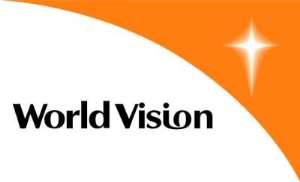
World Vision- Ghana (WVIG), a community-based Non-Governmental organisation, has introduced a reading programme to ten deprived districts.
The effort is to help bridge the wide literacy gap between children in urban and rural communities.
The programme, known as the Reading Improvement in Primary Education (RIPE) would enable children from the Kindergarten to Primary three to learn sounds of the alphabets and later form words with them in their local languages.
It is hoped that with this, the pupils would read faster and better when they switch to other foreign languages, especially, English as their first lessons are usually done in their local languages.
Mr Andrew Ofosu-Dankyi, Education Technical Programme Manager, said this to the media during a field trip in the Fanteakwa District of the Eastern Region.
He said the Korean International Cooperation Agency (KOICA) has budgeted $1.2 million targeting 981,203 pupils from Kindergaten to Primary three in various districts including as Fanteakwa, Afram Plains, Krachi East, Krachi West, Upper Denkyira West, Nkwanta South, Kadjebi, Kasenna Nankana East and Kintampo South.
The Programme Manager said the initiative has come at the time when libraries were fading out of the system, adding that it was WVIG's contribution to help the country attain quality education under the Strategic Development Goals (SDGs).
The unique thing about this programme is that it's libraries are digitized and complemented with 504 computer tablets, translated local stories and others accessible in Raspberry Pi device as well as 160,000 supplementary readers, the Mr Ofosu-Dankyi said.
He said apart from the digitised libraries, there are also reading camps; where the children sit on mats in an open space to play and learn at the same time- this is all geared towards encouraging them to read after school.
The programme was first piloted in the Kintampo South in 2015 and later replicated in ten other areas and its expected to end in 2021, Mr Ofosu-Dankyi said adding that an assessment done on the literacy boost programme in the Kintampo South showed that Twi reading had improved from 7 to 60 percent.
He said they had also put in measures to strengthen the programme being guided by the Ghana Education Service's (GES) standards.
Among the strategies are teacher trainers of trainees, who assist when challenges emerge as well as community action, where reading camps are set-up with reading banks attached to them, training of volunteers to man the camps, reading awareness campaign and creation of parents' awareness to support.
The teachers are equipped with various supplementary teaching aids like wall charts, phonic cards, among other pictorials to make their classrooms delivery rich.




 Lay KPMG audit report on SML-GRA contract before Parliament – Isaac Adongo tells...
Lay KPMG audit report on SML-GRA contract before Parliament – Isaac Adongo tells...
 Supervisor remanded for stabbing businessman with broken bottle and screwdriver
Supervisor remanded for stabbing businessman with broken bottle and screwdriver
 NDC watching EC and NPP closely on Returning Officer recruitment — Omane Boamah
NDC watching EC and NPP closely on Returning Officer recruitment — Omane Boamah
 Your decision to contest for president again is pathetic – Annoh-Dompreh blasts ...
Your decision to contest for president again is pathetic – Annoh-Dompreh blasts ...
 Election 2024: Security agencies ready to keep peace and secure the country — IG...
Election 2024: Security agencies ready to keep peace and secure the country — IG...
 People no longer place value in public basic schools; new uniforms, painting wil...
People no longer place value in public basic schools; new uniforms, painting wil...
 'Comedian' Paul Adom Otchere needs help – Sulemana Braimah
'Comedian' Paul Adom Otchere needs help – Sulemana Braimah
 Ejisu by-election: Only 33% of voters can be swayed by inducement — Global InfoA...
Ejisu by-election: Only 33% of voters can be swayed by inducement — Global InfoA...
 Minority will expose the beneficial owners of SML, recover funds paid to company...
Minority will expose the beneficial owners of SML, recover funds paid to company...
 Prof. Opoku-Agyemang has ‘decapitated’ the NPP’s strategies; don’t take them ser...
Prof. Opoku-Agyemang has ‘decapitated’ the NPP’s strategies; don’t take them ser...
